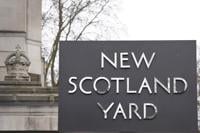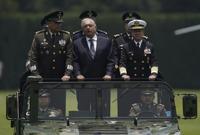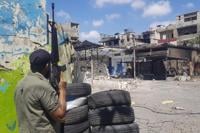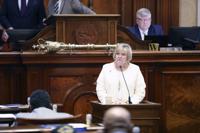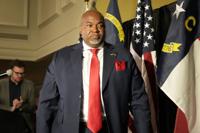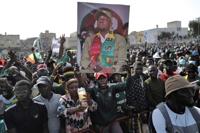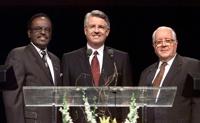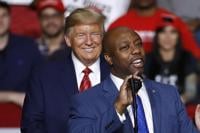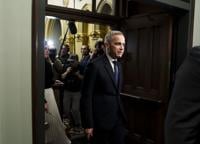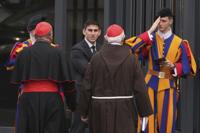LONDON (AP) — London police have been forced to call on neighboring departments and the military for backup after scores of specially trained firearms officers refused to carry guns after a murder charge was filed against one of their colleagues.
The action deepened the sense of crisis in Britain’s largest police force, which is struggling to restore public confidence after a series of scandals and an independent review that found it was riddled with institutional racism, sexism and homophobia.
Commissioner Mark Rowley, who heads the Metropolitan Police Service, called for greater clarity on the rules governing the use of lethal force and legal protections for officers when they make split-second decisions to fire their weapons. But that only fueled the concerns of some campaigners who said there is already a “lack of accountability” in the police force.
“Police cannot be judge, jury and executioner and must not be above the law,” said Deborah Coles, director of Inquest, a charity focused on state-related deaths. Rowley’s proposal “would make accountability for police use of force virtually impossible, effectively giving firearms officers a license to kill,” she added. “That cannot be in the public interest.”
The police department, known as the Met, has more than 34,000 officers, about 2,500 of whom are licensed to carry firearms.
Some firearms officers decided not to carry their guns after prosecutors last week filed murder charges against an officer who was involved in the shooting of an unarmed Black man in south London on Sept. 5, 2022. Chris Kaba, 24, died after he was struck by a single gunshot fired into the car he was driving.
The BBC reported that as many as 300 officers had laid down their firearms. The Met didn't confirm that number, saying only that “a number of officers” had stepped back from armed duties in recent days as they reviewed the implications of the charging decision for themselves and their families. The department said it was having discussions with the officers and some have already returned to firearms duties.
On Saturday, the Ministry of Defense agreed to provide backup for counter-terrorism operations, but that was no longer needed by midday on Monday, the Met said. A “limited number” of armed officers from other departments are still providing assistance in other areas of policing.
Home Secretary Suella Braverman, whose department oversees policing, on Sunday announced a review of the rules governing police use of force.
Rowley wrote to Braverman later in the day, calling for increased legal protections for officers. While Rowley acknowledged that police must be held to the highest standards, he said current rules are cumbersome and leave officers at risk of prosecution even when they follow their training.
“We rely on officers who are willing to put themselves at risk on a daily basis to protect the public from dangerous criminals including terrorists,’’ Rowley said. “Officers need sufficient legal protection to enable them to do their job and keep the public safe, and the confidence that it will be applied consistently and without fear or favor.”
Rowley stressed that officer-involved shootings are very rare in London.
London police respond to about 4,000 armed incidents every year, with officers firing their weapons less than twice a year on average, Rowley said in his letter to Braverman. That means that 0.05% of armed operations result in shots fired by police, he said.
The tensions over armed officers comes as Rowley tries to rebuild public confidence in his force following a series of scandals, including a serving officer who was convicted of kidnapping and murdering a young woman in 2021.
Rowley, who took the top job last year, has made it a priority to root out bad officers and improve training after in the department.
Restoring public trust is crucial for the Met because British law enforcement is based on the idea of “policing by consent,” which means most officers don’t carry guns and they rely on the public to respect their authority.
Rowley said police should be held to the “highest standards,” but the current system leaves good officers facing lengthy investigations and legal proceedings even when they follow their training.
“There is a concern on the part of firearms officers that even if they stick to the tactics and training they have been given, they will face years of protracted legal proceedings which impact on their personal wellbeing and that of their family,” Rowley said.
Peter Fahy, the former chief constable of the Greater Manchester Police in northern England, said that the action by firearms officers was symptomatic of a wider discontent among officers and a lack of confidence in the Home Office and the Independent Office of Police Conduct.
But he said that police understand that they are subject to criminal law in the same way as any other member of the public.
“The law is clear, the stated cases are clear, and I think those firearms officers absolutely fundamentally understand that because it’s part of their training,″ Fahy told the BBC. “As I say, this is really symptomatic of a wider discontent that officers feel that they’re misunderstood and unappreciated.”


